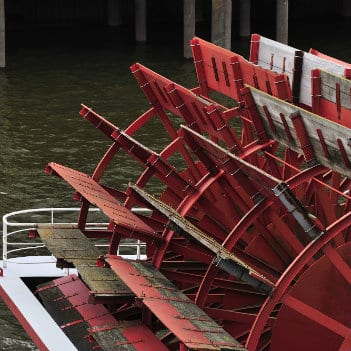Injured in a maritime or offshore work accident in Alabama? You may have several questions:
We can help you learn more about your options in a free consultation.
With over 77,000 miles of rivers and a southern coast on the Gulf of Mexico, maritime industries are naturally a big part of Alabama’s economy. Thousands of fishers, seamen, dock workers, and other maritime workers make their living in and around these waters. While the importance of these industries for the local economy and residents of the state cannot be overstated, it’s important to understand the dangers of maritime work.
Different maritime occupations have different risks which could result in an injury. However, many Alabama offshore work injuries are preventable and only occur because of the negligence of a co-worker, employer, or the owner of the vessel. When an employee suffers an offshore injury that occurs under these circumstances, he or she may have the option to hold their employer liable for related expenses under the Jones Act.
To learn more, contact our Houston maritime lawyers today.

Alabama has 19 ports spread throughout its various waterways. Some of the more economically significant ports include:
Located on the Mobile River in Bucks, AL, the Barry Electric Generating Plant uses coal and natural gas to produce electricity for 1.4 million customers throughout the state. This plant currently contains two docks which employ maritime workers:
The Bevill-Hook Port is located on the Tennessee-Tombigbee Waterway and is used for general freight transfer, with a specialty in wood products. The facilities contain a wood storage yard, cranes, and stowing capacity for up to 20 barges.
Also located on the Tennessee-Tombigbee Waterway, the Port of Guntersville has access to 23 states and the Gulf of Mexico. This is an industrial port which handles various types of cargoes, including steel, iron ore, petroleum, food, farm products, grains and oilseeds, and many others.
Alabama’s largest port by far, the Port of Mobile saw 29.1 million tons of cargo pass through its waterways in 2015. This port is operated and managed by the Alabama State Port Authority (ASPA). The port handles several different forms of cargo, including heavy lift and oversized cargo, containers, coal, metals, lumber, cement, chemicals, and many other goods and products.
The Port of Mobile has a major economic impact in the state, accounting for a total of 124,328 (direct and indirect) jobs and a total economic value of $19.4 billion per year.
Offshore workers and those who spend at least 30% of their work hours in the service of a vessel on navigable waters can seek financial compensation under the Jones Act. A Jones Act claim provides no-fault maintenance and cure benefits which provide financial assistance for necessary living expenses and medical bills. Additionally, this Act allows injured maritime employees to sue their employers if negligence was a factor in their injury.
Examples of negligence which could result in employer liability include:
Some maritime workers are not covered under the Jones Act, but may seek compensation for lost wages and medical expenses in a Longshore and Harbor Workers’ Compensation claim.
If you’re worried about how you’ll support yourself financially after a maritime work injury, don’t be. All maritime workers are eligible to seek financial compensation when they suffer a serious injury on the job. Actually receiving this compensation can be difficult, but with the guidance of an experienced maritime injury lawyer, you will have a much higher likelihood of receiving the coverage you need and deserve.
A lawyer is often necessary because of the complex nature of maritime law and because insurance companies try to limit payouts as much as they can. In order to navigate these complex laws and negotiate with difficult insurance companies, most injured maritime workers will need a lawyer to represent them.
You can find out more about your options and begin planning for your recovery in a free consultation with one of our maritime lawyers.
Also See: How To Recover Financial Compensation After A Louisiana Offshore Injury


 info@legalherald.com
info@legalherald.com